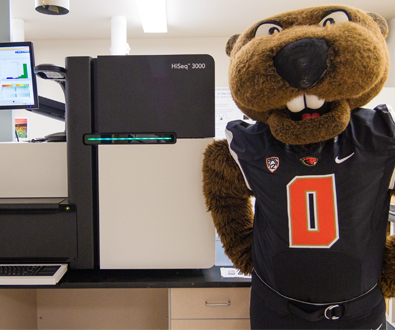
3 November 2015
Researchers at Oregon State University’s Center for Genome Research and Biocomputing (OSU) seek to become the first PAC-12 university program to sequence the genome of the school mascot – the American beaver.
“We hope that sequencing the American Beaver genome will enable us to better conserve the environment and the species,” said Brett Tyler, director of the Center for Genome Research and Biocomputing. “It will help us understand the biological basis for behaviors critical to the species’ survival and its contributions to forest and stream ecosystems, including the ability to construct dams and digest wood.”
Leveraging an interdisciplinary team of researchers from across the university with expertise in genomics, bioinformatics, animal biology, microbiology, wildlife biology, and forest and stream ecology, the team will use an Illumina HiSeq 3000 sequencing system to sequence a blood sample obtained from an American Beaver named “Filbert” living at an Oregon Zoo.
“The project is also a fun way to raise awareness of genome science in the wider community,” added Tyler.
Several other universities outside of the PAC-12 have previously worked on projects and collaborations to sequence mascot DNA – including researchers at the University of California Santa Cruz, who sequenced the banana slug, and an international team including researchers from Virginia Tech, who sequenced the turkey genome.
Learn more about the Beaver Genome Project.


